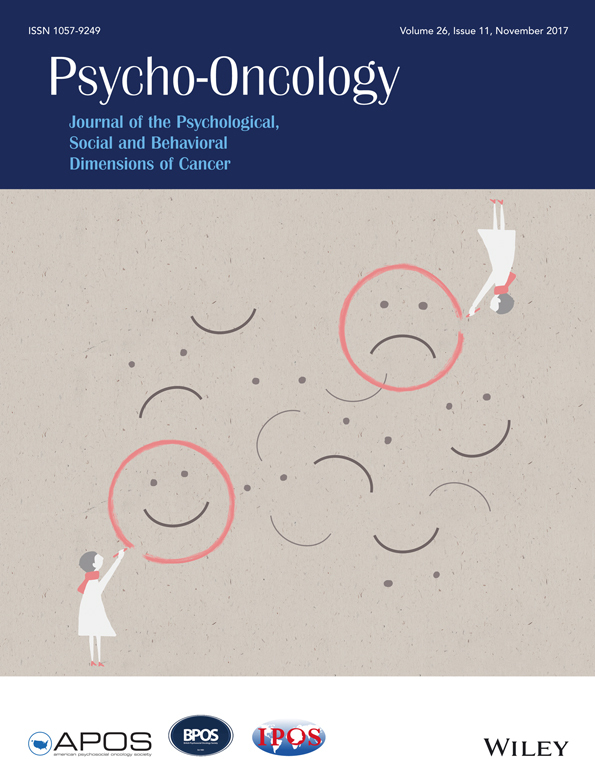Psychological morbidity among Australian rural and urban support persons of haematological cancer survivors: Results of a national study
Abstract
Objective
To compare the prevalence of anxiety, depression, and stress among rural and urban support persons of haematological cancer survivors and explore factors associated with having one or more of these outcomes.
Methods
Haematological cancer survivors were identified via 1 of 5 state-based cancer registries and invited to take part in a survey. Those who agreed were asked to pass on a questionnaire package to their support person. Measures included the Depression, Anxiety, and Stress Scale, Support Persons' Unmet Need Survey, and sociodemographic questions.
Results
Nine-hundred and eighty-nine (66%) participating survivors had a participating support person. There were no significant differences in the proportion of urban versus rural support persons who reported elevated levels of depression (21% vs 23%), anxiety (16% vs 17%), or stress (16% vs 20%), P > .05. Odds of reporting at least 1 indicator of psychological morbidity increased by 10% to 17% for each additional high or very high unmet need and by 2% for those who had relocated from their usual place of residence for the survivor to receive treatment and was decreased by 5% to 54% for those support persons who reported that they had no chronic health conditions.
Conclusions
Psychological outcomes for rural and urban support persons are similar. Those who have poor health, have had to relocate, and who have multiple unmet needs are particularly vulnerable to poor psychological outcomes. These factors should be assessed to enable early intervention for those at risk of poor outcomes.




